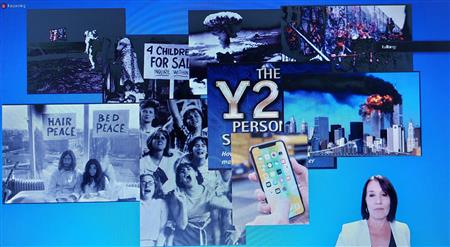

“Don’t force your children into your ways, for they were created for a time different to your own.”
Plato 429 - 347 BC
Maria Pedavoli is a Distinguished Toastmaster as well as an Educator, Careers Advisor specialising in Pathway Transitioning and Career Development. With a Master’s Degree in Education, she is currently working at Mary Mackillop Catholic College in Sydney. Having over 30 years of experience in education, Maria is well qualified to guide parents as they support their children’s journey towards future career decisions. Maria also works with organisations to bridge generational differences, creating understanding and engagement which will lead to a more harmonious and productive workplace.
MARIA PEDAVOLI: Generational Differences
“Don’t force your children into your ways, for they were created for a time different to your own.”
Plato 429 - 347 BC
Maria Pedavoli is a Distinguished Toastmaster as well as an Educator, Careers Advisor specialising in Pathway Transitioning and Career Development. With a Master’s Degree in Education, she is currently working at Mary Mackillop Catholic College in Sydney. Having over 30 years of experience in education, Maria is well qualified to guide parents as they support their children’s journey towards future career decisions. Maria also works with organisations to bridge generational differences, creating understanding and engagement which will lead to a more harmonious and productive workplace.
“We operate how we think.” Our formative years impact how we function as adults, how can we not? Generations can be marked by significant events during a 10–15-year period that influence how you respond and interact with the world around you. We learn from the generation before, adapting to the changes around us creating our pathway forward. The term ‘generation gap’ is often thrown into a conversation when there is a conflict or a difference of opinion. What are these differences between the generations? We currently live with 6 generations, 4 of these we work with. How these generations are defined can explain what shapes their perspectives and choices. Each generation is naturally a product of the one before, with the advantages and disadvantages, technological change creating the biggest impact and difference.
• SILENT GENERATION 1925 -1946
Shaped by the Great Depression
Priority was to obey, follow the Establishment, build security to provide for a family
Loyalty was valued – to work, Political Parties, Bank
Knew the value of what they had, worked hard, saved, paid cash, made do
Centred around family
Modest home, modest furnishings
Saw the greatest change in technology
• BABY BOOMERS 1947 - 1964
The era of Rock n Roll, The Beatles, Teen Angst, Teens found their voice in Music,
Later, questioning authority, protests
Priority to accumulate wealth, work hard to achieve the goal of a Family home and a family lifestyle
Technology came into the home, washing machines, TVs. Homes had garages and they had suburban growth
• GENERATION X 1965-1980
The era of the Me Generation and latch key kid - does it all for themselves, success and adaptability
Reflected in shows like Dynasty, Dallas, everything was bigger, flashy
The goal was/is to enjoy life, have it all. As a result, we have extreme wealth and extreme poverty
Dual income is required created to show signs of wealth. Credit available
Large houses with 2 or 3 car garages, boats, holidays, clothes
High divorce rate
Went from Analogue to Digital
• GENERATION Y 1981 - 1995
The Millennial, more acceptance of diversity and inclusion
Growth in economic prosperity,
A huge shift in technology; mobile phones, computers
Parents had children enrolled in afterschool activities most nights
A shift to more sustainable housing
• GENERATION Z 1996 - 2010
Live in the now
Constantly connected, globally aware, live streaming, Google is their go-to for information
Influenced by screen time: Social Platforms; Facebook, Spotify, YouTube,
Spend more time looking at screens than looking at people. Computers at Primary School
Personal information shared, means of communicating, shopping, socialising
Information accessible, opinions formed from a constant feed of websites. More globally aware
High rate of mental health issues as they seek validation
Delay settling, ‘growing up’ transition into house purchases, marriage, children
Between 2007 - 2020 there have been 12 new iPhones released alone
• GENERATION ALPHA 2011 - 2025
The glass generation is still at school, voyeuristic
Surrounded by devices, technology is a tool to interact, to entertain with a swipe.
They do not know a world without the Internet, everything is at their fingertips.
All aspects of their lives are on social media via their parents
Reality TV shows, sharing your life can bring celebrity status
How can knowing what influences and shapes each generation can be a useful resource in our own lives and interactions with those around us? How do we bridge the generation gap and connect? Considering all the different influences on your family, work colleagues, extra-curricular contemporaries and your social network allow you to modulate your responses and be more informed to their way of thinking. Change is a constantly evolving entity. Consider the art of compromise from the “back in my day!” response to ”how is it done today?” Maria points out intergenerational dynamics and emotions do not change, the technology around us does. We have much to learn from each generation if we choose to listen. Ask the question from what lens do your colleagues or children look through to gain their perspective?
